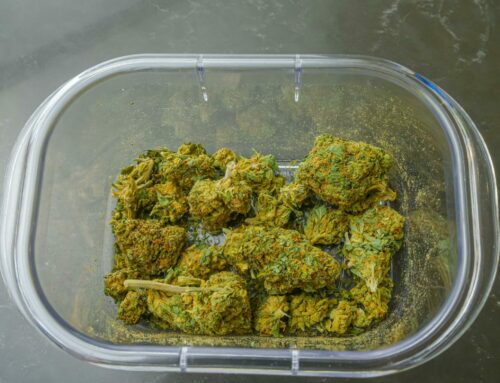How to Distribute Wholesale CBD Oil
CBD and everything else hemp-related is only becoming more popular with time, and projections suggest that the domestic hemp market is about to explode into an unprecedented period of growth based on a variety of emerging factors. With demand for hemp products increasing across multiple channels, there’s never been a better time to buy CBD products wholesale and distribute them at retail prices.
Certain approaches to distributing CBD, however, have proven more effective over the last few years than others, and you can save yourself a significant portion of your time and capital investments by learning from the mistakes of those who came before you. In this guide, we’ll cover some of the key data supporting the continued viability and low barrier to entry of the CBD industry and thoroughly explain why becoming a CBD distributor is the best way to capitalize on everything that emerging hemp markets have to offer.
Why should you sell CBD?
The euphoric buzz surrounding the hemp market has largely dissipated in the last few years as the CBD industry’s vibe has come to more closely reflect the mild, non-intoxicating effects this cannabinoid provides. With increased competition and the legitimization brought about by legislation like the 2018 Farm Bill, bad actors have largely been competed out of the CBD market, and larger companies have begun cementing their footholds.
In many ways, CBD has taken on the attributes of a permanent fixture in American life, and while this transformation may be bad news for snake oil salesmen who simply want to make a quick buck, there’s never been a better time for legitimate entrepreneurs to enter the hemp market. Consumer awareness of CBD has reached new heights, and as self-imposed quality standards have become normalized, the CBD industry has also become significantly more trustworthy.
Beyond these general trends, there are also a few concrete factors that prove the ongoing viability of the CBD industry beyond a shadow of a doubt. Mainly, trustworthy market studies have demonstrated that (despite ongoing normalization) the hemp industry will continue to experience explosive growth, and the CBD market is rapidly evolving to accommodate more non-intoxicating hemp constituents than just cannabidiol.
CBD market expectations
According to the economic journal Market Research Future, the global CBD market is expected to grow by 125.58% per year over the next six years. The CBD industry was already valued at over $500 million in 2018, and the total size of this emerging market will grow at an exponential rate for the foreseeable future. What’s more, around 20% of Americans have already tried CBD, and over 60% of Americans trust that CBD has legitimate medical applications.
Considering these expectations and statistics, there is still plenty of room for growth within the hemp industry. While more than ⅔ of Americans are open to the benefits of CBD, less than ⅕ of the population has used this cannabinoid, indicating that more than 40% of people in the USA have yet to be reached by CBD brands and distributors. While an increasing number of consumers gravitate to online shopping every year, there is still plenty of room for growth in other sales channels as well, providing room for a practically limitless number of entrepreneurs to leave their mark within evolving and established segments of the hemp industry.
The future of cannabinoids
Many aspiring hemp entrepreneurs still can’t see beyond the allure of CBD. This cannabinoid seemingly solves all the traditional issues with THC by being non-intoxicating and non-addictive while still providing significant benefits. The people who are laser-focused on CBD today, however, are the same individuals who failed to foresee the rise of CBD a decade ago.
THC and CBD are hardly the only cannabinoids that Cannabis sativa expresses. All told, this plant produces more than 100 cannabinoids, but most of them are analogs or copies of a few main compounds including cannabigerol (CBG), cannabinol (CBN), and cannabichromene (CBC). Each of these “minor cannabinoids” are each expressed in most cannabis strains in such small quantities that many entrepreneurs put them aside in their calculations, but all that is about to change.
Already, CBG is approaching the level of popularity that CBD has maintained for more than half a decade. This cannabinoid is very similar to CBD, but it’s different enough to be desired for its unique traits. The same goes for CBN and CBC, and further cannabinoids, such as CBDV and THCV, are also starting to enjoy their moments in the sun.
The future of the cannabinoid industry is not limited to CBD, THC, or any other single Cannabis sativa constituent. Instead, we’re currently witnessing the birth of an all-encompassing hemp industry composed of a greater number of distinct, profitable segments than anyone ever expected.
Becoming a CBD wholesale distributor: 7 easy steps
The hemp industry isn’t going anywhere, and this unique, highly profitable sector of the economy will only continue to grow in the coming years. Now that you understand the value of capitalizing on the opportunities available within the CBD industry, let’s go over the roadmap that every aspiring hemp distribution entrepreneur should follow on the way to greatness:
1. Study the market
First, take your time to fully understand the market that you are approaching. The information we’ve provided above is a good start, but you’ll need to invest a significant amount of time into your own research to avoid common pitfalls and capitalize on profitable ideas.
If you enter the hemp industry with your head full of principles that were applicable in 2018 but won’t be valid in 2022, you’ll end up fighting over scraps instead of enjoying the spoils of the hunt. Learn the history of the CBD market, understand its current form, and project your expectations into the future to understand where this emerging industry is heading and position yourself for the most benefit.
2. Create a business plan
After coming up with a general idea of how to approach the CBD market, take some time to develop a comprehensive business plan. Whether you’ll be shouldering all of the costs of your new business yourself or you plan to seek the assistance of investors, plotting a clear path toward success will help you get the most out of your new venture.
First, determine both the initial and ongoing costs of your enterprise. While marketing CBD products online costs less than operating a brick-and-mortar store, acquiring customers, managing inventory, and handling fulfillment isn’t free. Even the smallest CBD distribution businesses need at least $5,000 in startup capital and make sure to keep your monthly cost estimates realistic to avoid unexpected pitfalls.
Next, you’ll need to determine how long it will take for your business to become profitable. Investors will want to know this information more than anything else, and even if you’re going it alone, the first day you turn a profit is the first day you’ll get paid as a hemp entrepreneur. Leverage your expected costs against your projected revenue to get a clear idea of when your business will be in the black.
3. Determine your sales channels
Part of coming up with an effective sales plan is figuring out how you will sell your products. If you plan to open a brick-and-mortar store, you should also consider offering products online, and if your new distribution business will be strictly online, you’ll need to consider how you will acquire and retain customers.
Online businesses commonly advertise on social media, and you may also want to explore the potential of pay-per-click (PPC) advertising even though most PPC ad companies are traditionally averse to hemp-oriented enterprises. If you operate a website to distribute your CBD products, you’ll need to invest in search engine optimization (SEO) to compete with other sellers, and you’ll also need to take other factors into account like product pictures and site design.
4. Select the products you want to sell
Now that you’ve established a basic plan for how you’ll move product, you need to determine which segment of the hemp economy you want to target. Do you want to capitalize on emerging trends and offer CBG-rich products, or do you want to accept greater competition and offer products within traditional CBD product categories?
Even if you decide to solely offer CBD products, there are lots of different product categories to choose from. Tinctures, capsules, and topicals have become the norm within the CBD industry, but over the last couple of years, the CBD flower sector has experienced explosive growth, making this product category the primary target of savvy hemp entrepreneurs.
5. Pick a qualifying wholesale brand
Even the best-laid CBD distribution plans will go awry if you don’t pick the right products to sell. Your ideal brand partner will provide you with fair prices, offer consistent access to products, and operate reliably and professionally in every way that matters.
In general, it’s best to work with brands that have been around for a while. A CBD company that just came into existence may cease to exist just as quickly, leaving you in the lurch and forcing your customers to get used to new products. Since there’s more competition within the CBD industry these days, it’s also important to choose a company with high-quality products that stand out.
6. Choose a name and acquire licensing
Before your CBD distribution business can start legitimate operations, you’ll need to choose a name for your company and acquire a business license. You don’t need any special licensing to sell CBD products, but depending on the type of business you intend to operate, you might need to get in touch with your state, county, or local licensing office to get your hemp distribution operation off the ground.
7. Start selling
You’ve dotted your “i”s and crossed your “t”s, and now it’s time to get down to business. Remember that any distribution business can take a while to get going in full swing, and with online-only CBD distribution businesses, getting up to speed can take even longer since search engines will need to crawl and index your site before potential customers can find you.
Keep trying your best to build awareness of your company, and don’t be too disappointed by minor setbacks. The CBD industry will be around for a long time, so as long as you diligently pursue your goals, you’ll achieve success as a CBD distributor before you know it.




































